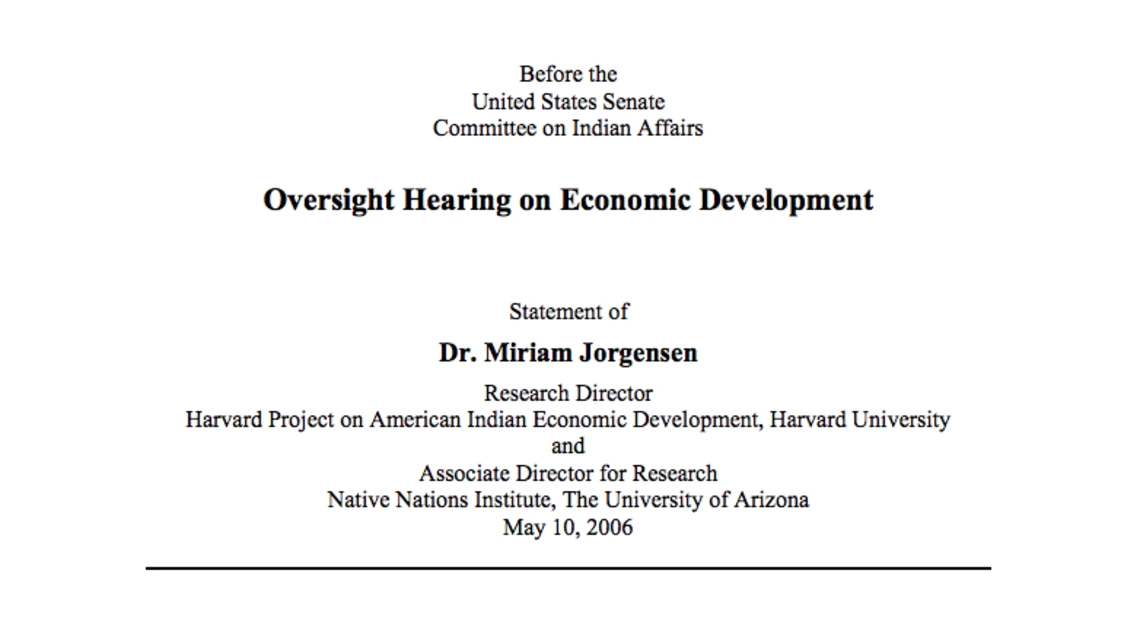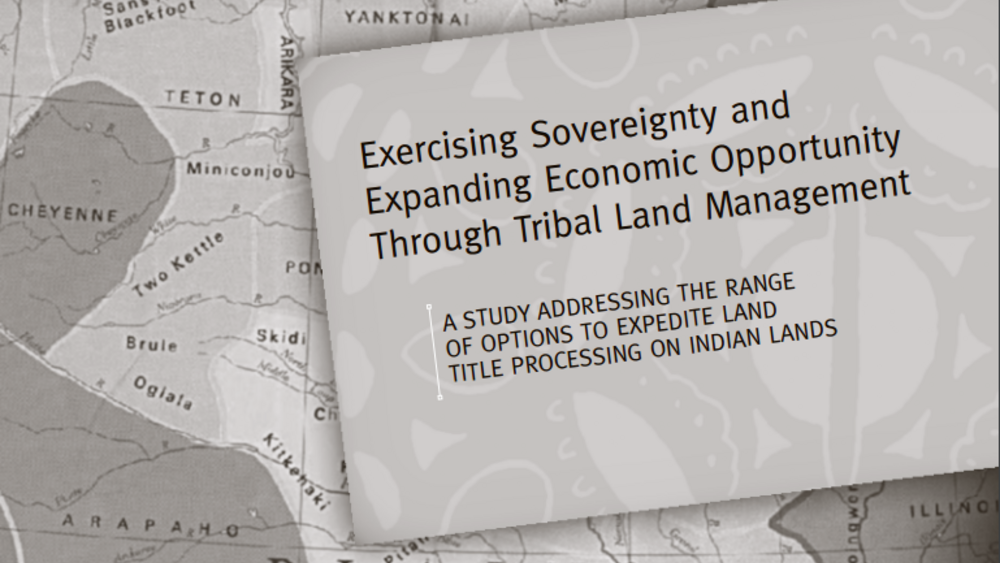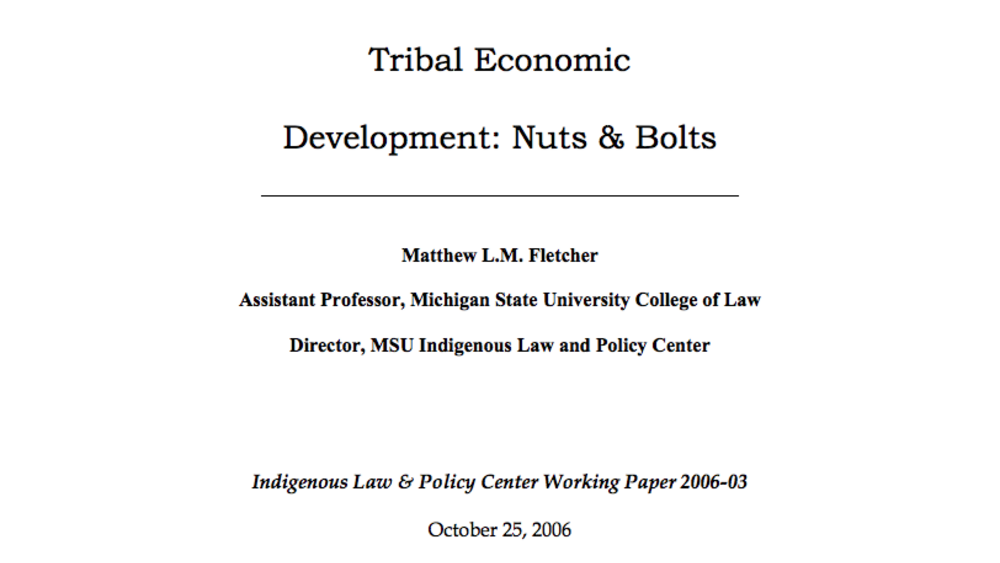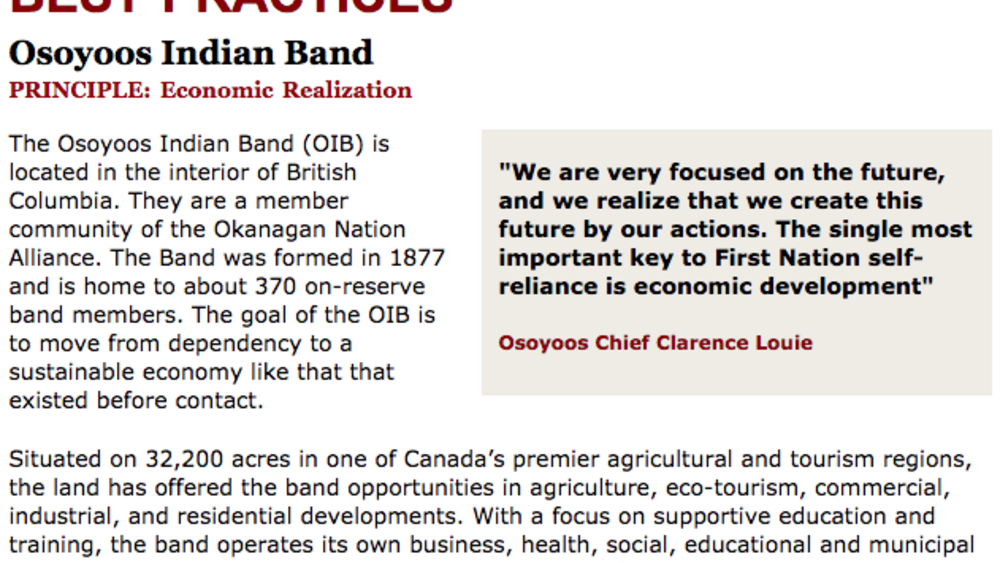Why is it that, amidst the well-documented and widespread poverty and social distress that characterize American Indian reservations overall, an increasing number of Native nations are breaking old patterns and building economies, social institutions, and political systems that work? What explains the stark differences in development we now see across Indian Country?
Additional Information
Jorgensen, Miriam. "Oversight Hearing on Economic Development." The United States Senate Committee on Indian Affairs. Harvard Project on American Indian Economic Development, John F. Kennedy School of Government, Harvard University. Cambridge, Massachusetts. May 10, 2006. Report. (https://www.indian.senate.gov/sites/default/files/upload/files/Jorgensen051006.pdf, accessed January 2, 2023)




